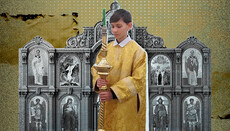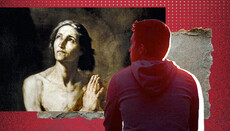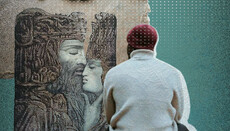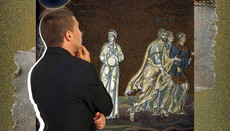Why do people bear such different life crosses?
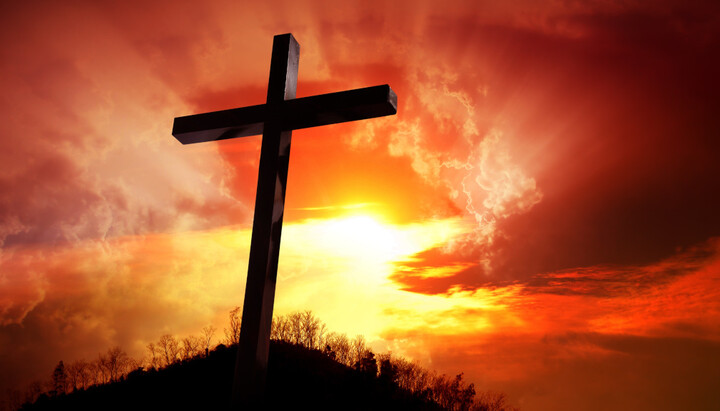
September 27 is the day of the Exaltation of the Life-Giving Cross of the Lord.
The Cross of the Lord is one of the greatest paradoxes of Christianity. The instrument of torture, upon which the Son of God died, becomes a banner of victory. Suffering became the path to liberation, and agony – the road to unending joy.
The Cross is a doorway from the material world into the spiritual realm. But why is this doorway so different for each person? Is there any principle behind the distribution of the size and shape of our crosses? Even the great saints could not find an answer to this question. It seems, from the outside, that there is no answer at all, no principle – that everything happens randomly. But there can be no coincidences with God, for everything is governed by His benevolent providence.
Those unfamiliar with Church hagiography, relying only on the phrase from the Psalter, "The death of sinners is evil," point out examples of how terrifying the deaths of atheists and blasphemers were. They suggest that God grants a peaceful and quiet death to saints and the righteous. But didn’t many of our saints also die agonizing deaths? St. Syncletica of Alexandria was devoured alive by worms. And what torturous deaths St. Nektarios of Aegina and St. Paisios of Mount Athos experienced, as well as hundreds of thousands of other more or less well-known saints. Even now, innocent children die in torment from cancer, tuberculosis, and other diseases. And don’t the righteous, who lived blameless lives, also suffer before death?
And are there not many examples of how tyrants, sadists, and those responsible for the deaths of millions of people died peacefully, almost painlessly? Did Stalin suffer before his death? How many executioners of NKVD camps died peacefully at home, in their own beds?
Yet, to claim that the righteous are purified for eternity through suffering and that sinners die easily because they are destined for eternal torment in hell is also impossible. Because even among obvious sinners, there are those who die in great agony. The Freemason and essentially Satanist Patriarch Meletius of Constantinople died a terrifying death; he endured six days of agony. There are many such examples. So, what conclusion can we draw from all this?
As I have already mentioned, it is impossible to draw a direct connection between the quality of one's spiritual life and the quality of their death. If we, as humans, understood the principle of how and from what the cross grows, we would do everything in our power to rid ourselves of any cross, even the smallest one. No one wants to suffer, be ill, or endure torment. It is natural for a person to seek joy and bliss.
Furthermore, it’s important to understand that the cross is not only about "why" but also "for what purpose." When the Holy Martyr Anatoliy Zhurakovsky was serving time in Stalin's labor camps, he received a letter from the daughter of Natalia Dmitrievna Opackaya. Natalia was a woman of holy life, impeccable faith, and the highest moral qualities. In the autumn of 1936, she fell seriously ill and then suffered a long, painful death by the end of the year. This righteous woman’s death deeply disturbed and shocked her daughter Vera, who wrote about it in a letter to Father Anatoliy. His response was the following:
"You say that witnessing such suffering could cause one to lose faith. I think that you have never looked closely at the Crucifixion or experienced its mystery deeply within your heart. The suffering of the Innocent, terrifying mortal suffering, the cross accepted in the face of Eternity – this is the very foundation of our worldview, our faith… The idea that suffering is always punishment for personal sins is not a Christian one… It is subjected to devastating critique even in the Book of Job. But for your faith, suffering is a transformation of the world as a whole, a participation in the creative Divine plans. We always judge by appearances… We do not see the deeper layers of existence, where true events and transformations take place."
When St. Joseph the Hesychast endured severe torments that seemed unbearable, Christ appeared to him, Crucified on the Cross, and asked him: "I endure all this for you, but what can you endure for Me?"
The community of Father Anatoliy Zhurakovsky was mainly made up of young people. He himself was an extraordinarily gifted and versatile person.
But in the most difficult years for this community, under Father Anatoliy’s care, a servant of God, Alexandra, a twenty-year-old girl, died. She had dreamed of dedicating her entire life to God, filling it with eternal meaning. She died from blood poisoning caused by osteomyelitis. Then a seventeen-year-old boy, Vasily, died of typhoid fever. In his unconscious state, he continuously recited the Jesus Prayer. And before that, Vladimir, who was fifteen, died of tuberculosis. He died very painfully, in great torment. Father Anatoliy spoke of him as a young man whose heart burned with fiery love for Christ, with an unshakable conviction in the truth of the Gospel. Vladimir stood out among the others for his constant desire for action and heroic deeds. These were the best people in his community, and they passed away unexpectedly, almost simultaneously.
My close friend, Father Sergiy Beylinov, passed away in 1999 at the age of thirty-nine. He was eight years older than me. I am now fifty-six, and in all my life I have never met a person who could remotely compare to Father Sergiy in spiritual beauty and talents. I am sure that if Father Sergiy were still alive today, he would have become a great elder. But he died at the very beginning of his spiritual ascent.
On the other hand, we see many people around us, especially those who determine the fate of entire nations, whose deaths would undoubtedly make our world a much brighter place. Yet, for some reason, God is in no hurry to remove this filth from our world. God’s ways are incomprehensible to us, just as His providence for each person is beyond our understanding.
The only thing we can say with certainty is that there is no one in paradise who hasn’t been crucified. Whether by their death or by carrying the cross throughout their life, people enter the Kingdom of God through their own Golgotha – there is no other way. The weight of this cross is different for everyone, and its burden is determined by God. What practical advice can we draw for ourselves when it comes to bearing our cross?
One can try to distribute their cross more or less evenly throughout life. In other words, don't wait until a heavy illness or life burden falls upon you, but force yourself to take at least a small piece of your cross daily. This means narrowing your daily path wherever and however you can. Don’t eat as much as you want, don’t sleep as long as you’d like, and don’t allow yourself to relax even when there is an opportunity. Compel yourself to act against your own will and not indulge your ego. Do what you don’t want to do, rather than what you desire, and so on. In other words, become your own persecutor, and don’t wait for the Lord to drive you through the providence of His love and the rod of His care for our salvation. Live in such a way as to voluntarily walk the narrow path, rather than be forced into it.
